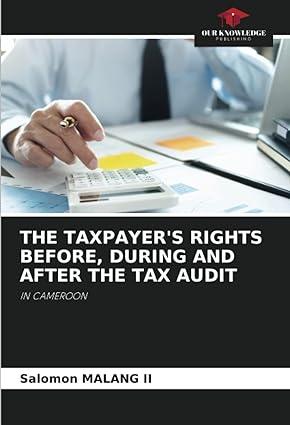Question
There are 128 credit unions in Saskatchewan, with assets ranging from less than $1 million to more than $1 billion. All of these are affiliated
There are 128 credit unions in Saskatchewan, with assets ranging from less than $1 million to more than $1 billion. All of these are affiliated with Credit Union Central of Saskatchewan, which facilitates cooperation among credit unions and provides consulting services, trade association functions, and liquidity management.
Credit Union Central, together with the four largest Saskatchewan credit unions, developed a plan to implement a comprehensive HRM system to produce, first, a better alignment of employee performance to organizational objectives and, second, more focused training to produce desired business results and an enhanced ability to retain employees through opportunities for professional development. Working with Hay Management Consultants, the first step was to develop a competency glossary, followed by performance management processes and tools, selection and staffing tools, and then succession planning.
Competencies can be defined as attitudes, skills, knowledge, or behaviours that are essential to perform at work and that differentiate superior performers. The competency glossary defines core competencies, which apply to all roles within the organization, and role-specific competencies. Competency target levels indicating superior performance are set for each role.
An example of a core competency, based on the key values and strategies of the organization, is results orientation:
When your employee tried to improve his or her own performance, he or she
-
Identified areas of waste or inefficiency but did not take any action
-
Made some changes to work methods to reach particular goals that had been set for him or her
-
Made specific changes in the system and his or her work methods to improve performance beyond goals set
-
Set challenging goals that were accomplished with a significant amount of planning, analysis, and effort
-
Set individual goals by thinking through the costs and benefits and explicitly considered potential profits, risks, and ROI to make decisions that ended up having a positive organizational impact
-
Took a calculated entrepreneurial risk and committed significant organizational resources to act on an idea that ended up significantly improving performance
A role-specific competency might be concern for order, quality, and compliance, defined as follows:
When your employee demonstrated attention to detail in his or her work, he or she
-
Checked on the work to ensure that it was accurate, complied with all relevant regulations, and followed all standard practices and procedures
-
Monitored the accuracy and quality of his or her work and others work consistently and systematically and kept a detailed record of work when it was necessary
-
During the project, monitored the progress of the project against milestones and deliverables, took action to ensure that the procedures put in place were effective, and quickly corrected any weaknesses or deficiencies
-
Established and utilized a procedure and/or system to facilitate work efficiency and ensure high-quality output and modified and improved the procedure and/or system when a weakness was identified to ensure that high-quality work was being produced
Managers work with employees to assess
competency levels. The competency glossary and a competency assessment questionnaire enable managers and employees to discuss skills, abilities, and behaviours using a common framework. Training and development plans are based on gaps between target performance and actual performance. A developmental resource kit, which includes training courses, seminars, books, and work opportunities, all classified by competency, assists with building development plans.
This approach has resulted in clear direction on performance and development plans to move employees toward optimum performance levels.
Questions
1- Describe the advantages of the approach used to identify performance gaps.
2- Why would managers resist or support this approach?
3 - Describe methods that you would use to evaluate the effectiveness of this approach by levels of learning, behaviour, and results.
Step by Step Solution
There are 3 Steps involved in it
Step: 1

Get Instant Access to Expert-Tailored Solutions
See step-by-step solutions with expert insights and AI powered tools for academic success
Step: 2

Step: 3

Ace Your Homework with AI
Get the answers you need in no time with our AI-driven, step-by-step assistance
Get Started


